


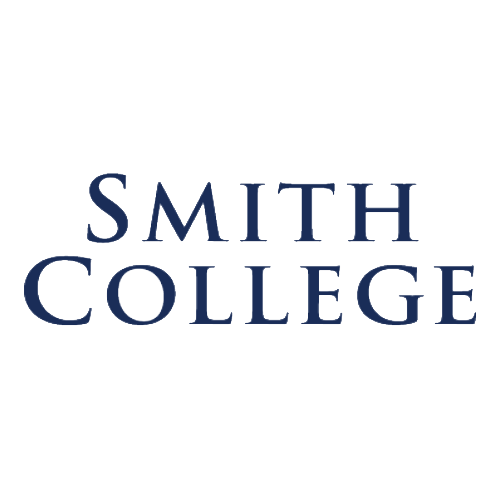


 Official Transcript
Official Transcript .svg) Essay
Essay  1 Recommendation
1 Recommendation  English Test B2
English Test B2  Additional Requirements
Additional Requirements  Online Application From
Online Application From  Application Fee
Application Fee 


Application is closed


High school students from around the world gather together to hone their writing skills in a highly creative, but nonjudgmental, environment. The equation is simple: you, your talent and what you want to write about. The sum total: Magic!
 Non-credit
Non-credit
 Residential
Residential
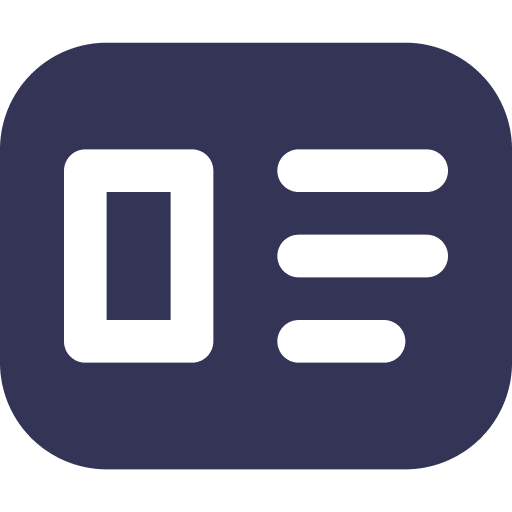 Accepts International Students
Accepts International Students
With few writing programs that cater exclusively to students in high school, Smith’s Creative Writing Workshop allows you to explore your writing in a creative and supportive environment. This program will foster your love of writing in a variety of mediums. All of our classes apply the design model to writing: Rather than trying to craft perfect texts, we teach an open, multidraft process that embraces the unpredictable that occurs when we stop trying to control our writing. So while you will learn how to edit your own and others’ work, our primary goal is for you to learn a powerful, flexible approach that eliminates writer’s block and gives you access to your full creativity.
Instructors are published writers who have been trained in this methodology and who provide a supportive, strengths-based classroom environment. In addition to individual feedback from your instructors, you will also become part of an international writing community, as the program accepts students from all over the world.
In the evenings, students can take part in activities such as open mic night and improv, or attend workshops on publishing, finding an agent and creating an author website.
At the end of the program, you will have the start of an online writing portfolio, an anthology with writing samples from all of the students and professional contacts in the literary world.
On-campus, residential
When applying to Smith Precollege, you are applying to the program, not a specific course. In late Spring we will send a course selection form. Please have more than one desired course in mind when applying to our program.
Courses
MORNING SESSIONS
Flash Fiction
Sometimes we don’t need all our words to tell a story. Sometimes it arrives like a bolt of lightning, or at least it feels that way to the reader. If you like the electricity and snap of saying more with less, flash fiction will give you a good workout. In this workshop we will explore how to hone in on the essence of character and plot and weed out what doesn’t need to be said. We will toy with the line between sudden fiction and prose poems, and let ourselves define the boundaries. We will dip into the history of this genre and its various forms, and in the process we will discover what surprises us and takes us someplace new.
iFiction
In this two-week session, we will write and revise our stories in a supportive community. The first week is designed to tap the muse and inspire new work through a series of writing exercises in-class and around Northampton. We will read short published work to deepen our understanding of scene, point of view, character, setting and dialogue. In week two, we will focus on revision. Through group discussions and an individual instructor conference, we will consider the strengths and weaknesses of the work we produce and identify revision strategies. Students will leave this course with lots of ways to generate new writing as well as tactics to move their work to the next level.
Realistic Unreality: A Workshop in Science Fiction
We live in a science fiction world, where billionaires build rocket ships and a new virus threatens civilization. The dreams and nightmares of science fiction writers are mundane reality, and nobody dismisses the genre as “Buck Rogers stuff” any longer. Realistic Unreality is a workshop for aspiring writers of science fiction and fantasy. We will focus on how to make stories which are good as fantastic fiction and good as literature. During the first week, students create stories, helped and inspired by writing prompts and readings from some of the field’s masters. Brief lectures address the fundamentals of character, plot, world building and voice. In the second week, the class will jointly critique stories and get practical advice on submitting stories, publishing and the business of writing.
StoryLab: Experiments in Fiction
In this generative two-week course, we’ll explore and expand our powers as fiction writers. Using works of brilliance—not only literature but also music and visual art—as portals, we’ll produce a dozen new story ideas, and hone one draft for workshopping in the second week. We’ll try out first-person monologues, god-like omniscience and a range of narrative structures from flowing to fragmented. We’ll move closer to understanding what makes each of our voices singular and compelling. Visits to galleries, gardens and bookstores on campus and in town will help inspire our work and play. In our second week, we’ll share work in a supportive atmosphere and discuss ways to sustain our artistic practice long after summer ends.
Strange Realms
Weird worlds, peculiar places and eerie environments! That’s where we’ll find ourselves in this two-week workshop. We will explore what it means for something to be weird, mythical and magical. We will create and destroy worlds. We will become cruel gods and puppeteers pitting our characters against mythical creatures, disastrous events and maybe even apocalypses. This workshop is for writers who enjoy fiction with fantasy elements, so bring your heroines, your monsters, your ghouls, your ghostbusters, your stranger things and creatures that may live in the Upside-Down. The first week, we will engage in imaginative writing prompts, worldbuilding exercises and generate new material as we work to create a shared knowledge of common craft elements such as writing compelling characters, choosing the right setting and story structure. The second week, we will workshop each other’s stories, provide constructive feedback and apply the tools we learned in week one to help strengthen each other’s work. You’ll leave the workshop feeling energized to tell the stories you’ve always wanted to tell!
The Writer’s Eye
What makes writing come alive on the page? How do the authors we love immerse us in scenes so vivid we feel as if we’re experiencing them ourselves? In this two-week session, we’ll explore all the elements of crafting fiction with a special focus on learning how to make imagined moments real. Using short examples of evocative prose and field trips to local attractions like the Smith Art Museum and the Botanical Garden, we will hone our writer’s eye and our attention to detail. We’ll generate pages of lively prose through in-class writing prompts and small group writing exercises. The second week will be devoted to supportive and constructive workshop discussions. An eye for arresting detail strengthens any writer’s work, so although this course is designed primarily for writers of fiction, it should be useful for those interested in poetry, nonfiction, and graphic novels as well.
Writing Fantasy: A Workshop in Writing Reality-Bending Fiction
Do you write (or aspire to write) fiction unencumbered by what’s “realistic”? Are you inspired by fairytales, mythology, fantasy, science fiction, ghost stories or dreams? Do your characters sometimes have magical abilities? This workshop is for writers interested in exploring modes of storytelling other than realism while simultaneously learning how to strengthen all of the traditional elements of fiction. The first week, we’ll generate new work in response to a number of imaginative prompts and writing exercises. We’ll also look at short, masterful excerpts from authors who challenge realism, with special attention to the types of fabulist distortions used and the real-world truths they get at. We’ll turn an eye to questions of craft: What makes a compelling plot? How do we create characters so alive we can feel them breathing? How do we build tension from the first lines? The second week, you’ll receive feedback from the group on one story, and we’ll focus on revision and next steps in your writing journey. You’ll leave with lots of new work as well as tools and techniques that will help you continue to write and explore reality-bending stories on your own.
AFTERNOON SESSIONS
Poetry
What does poetry look like in the year 2023? Why do we write it? Who are we writing for? What is it ‘about’? This workshop will approach these questions by exploring Emily Dickinson’s idea of the ‘Flood Subject,’ that one idea you always return to, as a means for developing a coherent body of poetic work. We will discover and explore our own Flood Subjects as a way to engage with important questions about identity, citizenship, history, origin, family, gender, sexuality, the body, love, loss, grief, joy and all the other conditions that affect our relationship to the larger world around us. We will experiment with imagery, narrative and editing techniques; and collaboratively support each to arrive at our own understanding of craft, voice and form. We will work together to take a deeper look at the complexity of poetry, not as a puzzle to be solved, but as an exciting venue to expand our capacity for language and ideas.
Making Poems
In our workshop, we’ll approach writing as a playful endeavor, exploring epistolary poetry (poems as letters), ecopoetry (poems as activism for the environment), ekphrastic poetry (poetic responses to visual art), some fun new poetic forms, writing inside and outside in inspiring places, and writing in collaboration with each other. We’ll cultivate our imaginations while experimenting with our own writing and responding to the work of others. In the poems we create in workshop, and in the poems that we read and listen to together, we’ll investigate and appreciate originality, heart, music, the use of beautiful, interesting language, and the ways in which poems can represent us and take a stand for the things we hold dear and the things we want to change.
Playwriting
In playwriting, students will have the opportunity to write and develop their own, original scripts. Starting with writing prompts, students will learn how playwrights nurture their own ideas into fully realized theatrical experiences. Students will have the opportunity to see and read scenes from famous plays, and then take their own ideas and out them into action. We will constantly stress that theatre is to be seen, and thus, students will integrate all facets of theatre—acting, lighting, set design, and costume design- into their scripts. All scripts will be read, discussed, reworked and performed. The goal is to have our students not only develop an appreciation of dialogue, but also to leave the workshop with a script they further develop and perform.
Screenwriting
Consider a strange form of writing ... where the words on the page are but the first step to an end product that is not based in words at all! The screenwriter uses words to illicit images, thus guiding readers to “make a mind movie” (and hopefully an actual movie in the future). In this course, we will study the three-act structure of film as a medium, then use our understanding of that structure to craft screenplays of our own. We will explore the use of tone, character voice, dialogue and action as vehicles to drive our scripts. By the end of the class, each student will have created a concept, written an outline for a full feature and penned three sequences from that film (one from each act).
Stand Up!
Stand-up comedy has the power to heal and renew, validate shared experiences, counterbalance bigotry and reach people who would otherwise be unwilling to listen. In this workshop, you’ll learn how to be a stand-up comedian. We’ll analyze the works of established comedians and discuss the impact of certain types of jokes. We’ll explore how to identify potential material, how to turn life experiences into jokes and make simple observations funny. You’ll learn ease, flow and stage presence through improvisational games and develop your own personal comedy style or persona. We’ll also discuss how to control hecklers and other distractions during a performance. By the end of the workshop, each student will have a stand-up set that they can perform for the class.
Writing about Food
In this class we’ll explore the elements of creative nonfiction using food as our topic and inspiration. Food is a powerful force in our lives: it is a site of guilt, desire, joy, memory, self-denial, and even fear. This means it can be used as a potent tool in writing memoir, portrait and description. In the first week of this class we’ll examine short works of creative nonfiction that use food as a key element, and you will be given in-class exercises and prompts based on those works that will help you generate ideas and write your own pieces about food and its meaning in our lives. During the second week we will use a variety of workshop methods to help you expand, revise and polish one of the pieces from the first week. Take this class if you’d like to write about that time you snorted milk through your nose in the elementary school cafeteria.
Classes are Monday–Friday
In-person classes go from 9 a.m. to 4 p.m.
Morning sessions are 9 a.m.–noon
Afternoon class from 1–4 p.m.
After that, your time is yours. We hope to safely offer you access to the following on-campus amenities: two indoor gyms, outdoor track and field, botanic gardens, Smith’s distinguished art museum and the new Neilson Library. There are after-class activities every day. Examples include:
Art and Inclusivity—with the Smith College Museum of Art
Plant Literacy: The Basics—with the Botanic Garden
Vision Boarding and Writing Prompts
DIY Recycled Notebooks
Bullet Journaling
How to Naturally Dye Your Clothes
Yoga in the Garden
’Zine Making
Designing Your Life: The Next Five Years
Cancel Culture: Discussion and Critique.
Academic lectures and office hours are also hosted throughout each week. Meals will be provided in a Smith dining hall. Smith Precollege Programs will continue to follow COVID-19 health and safety guidelines. The COVID-19 Safety Plan for Smith Precollege Programs will be shared in early summer and includes the requirement that all Precollege Program participants, staff and faculty must be fully vaccinated (plus booster) prior to arrival on campus this summer.
For young women, female-identified or gender-nonconforming students who will be entering grades 9, 10, 11 or 12 in fall 2023.
 Official Transcript
Official Transcript
.svg) Essay
Essay
 1 Recommendation
1 Recommendation
 English Test B2
English Test B2
 Additional Requirements
Additional Requirements
 Online Application From
Online Application From
 Application Fee
Application Fee
1. Personal Essay (500-word maximum):
Please respond to ONE question as your essay prompt.
1. Tell us about the experience, event, book, movie, person, place, etc. that initially sparked your interest in science. What was it about this event, person, etc. that inspired you?
2. Tell us why you want to attend an intensive program in your chosen field at Smith College?
There will be a prompt for you to upload a PDF or Word document to the application.
2. High School Transcript
Transcripts may be uploaded to your application. One full year of grades needs to be received. Alternatively, your school may email the transcript to our office.
3. Letter of Recommendation
All applicants must submit one academic recommendation from a teacher. There is a section in the application to provide your recommender's name and email contact.
4. International Student Documentation
International students are welcome to apply to any of our program offerings. International applicants may need to submit their English proficiency test scores. Test scores should be sent to Smith College.
International students should be aware that participation in Smith Precollege Programs does not constitute the basis for securing a student visa (F1). Students in the program should be able to obtain a Visitor (B) visa. If you will need to obtain a Visa, please be aware of your embassy/consulate Visa Appointment Wait Time.
5. Financial Aid Form (only if applying for financial aid)
Students applying for aid will need to have their family income and financial details on hand. You will also need to upload a copy of your tax return from 2021 or 2022 (typically the first two pages of the 1040 are sufficient). If taxes were not filed then an end-of-year wage statement (W-2) may be submitted.
6. Application Fee
The payment link is provided after you submit your application (Mastercard or Visa are accepted). The fee is nonrefundable.
Deadline
December 15, 2022
2023 Program Application Opens
Application reviews start after January 3 and then are done on a rolling basis until programs are filled.
February 5, 2023
Priority Application Deadline
Complete an application by February 5 to be considered a priority applicant. All applicants will hear back by February 17.
March 5, 2023
Financial Aid Deadline
Apply by the date if you are submitting a financial aid application. All applicants who are applying for financial aid will hear back by March 24.
April 16, 2023
Application Fee Increases
The $50 application fee increases to $100.
May 15, 2023 Final Program Payments Are Due
Last day to apply.
Once all completed application materials are received, students are notified within 14 days of their acceptance status.
Admission is determined on a rolling basis. Students are encouraged to submit a completed application as soon as possible.
 Jul 09 - Jul 22
Jul 09 - Jul 22
 2 weeks
2 weeks
Cost
Tuition: $4,630 | Deposit: $925
Deposit due within two weeks of acceptance.
The $50 application fee increases to $100 April 16, 2023.
Financial Aid
Smith Precollege Summer Programs financial aid is available to a limited number of participants and is awarded on the basis of demonstrated financial need and eligibility for the program. To be considered for financial aid, you must complete the financial aid section on the application and upload tax documentation.




 Official Transcript
Official Transcript
.svg) Essay
Essay
 1 Recommendation
1 Recommendation
 English Test B2
English Test B2
 Additional Requirements
Additional Requirements
 Online Application From
Online Application From
 Application Fee
Application Fee



Application is closed

Useful Resources
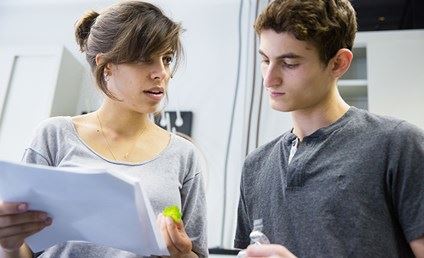





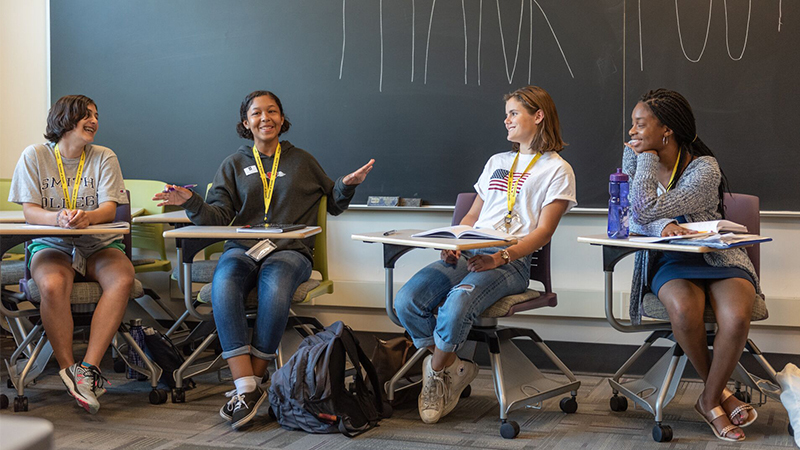
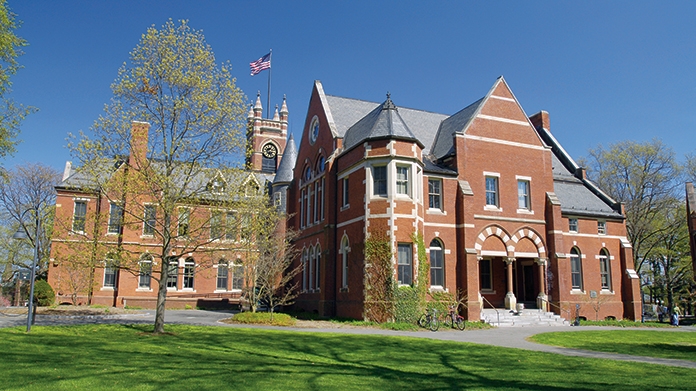
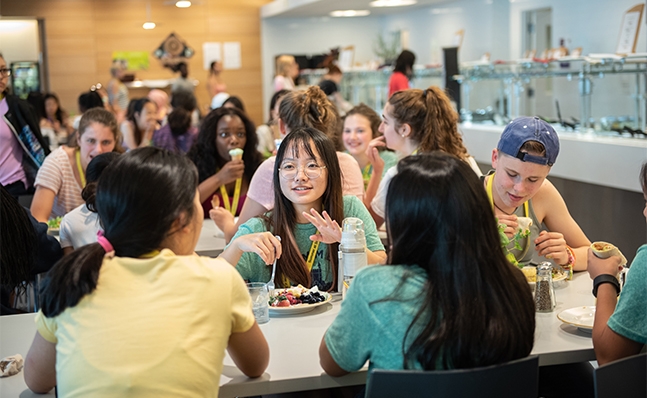
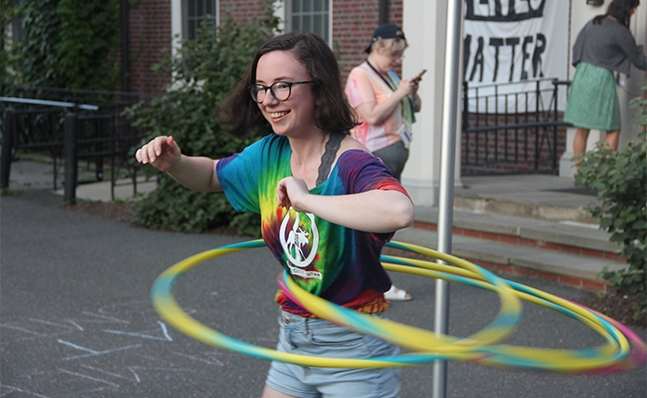

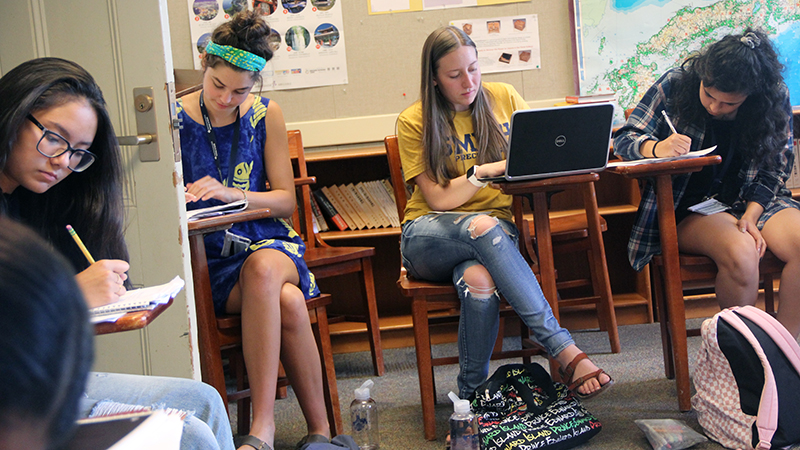




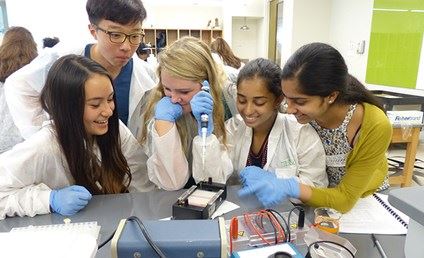
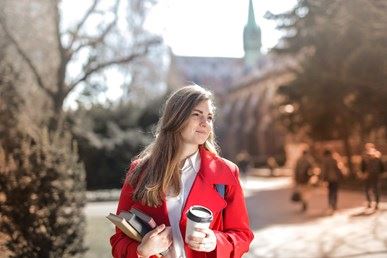
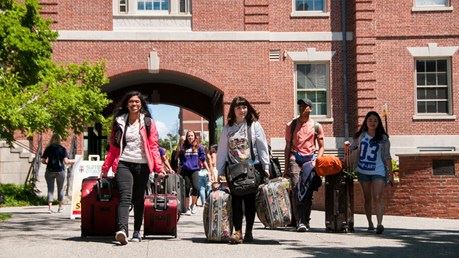

Tell us your
opinion about us